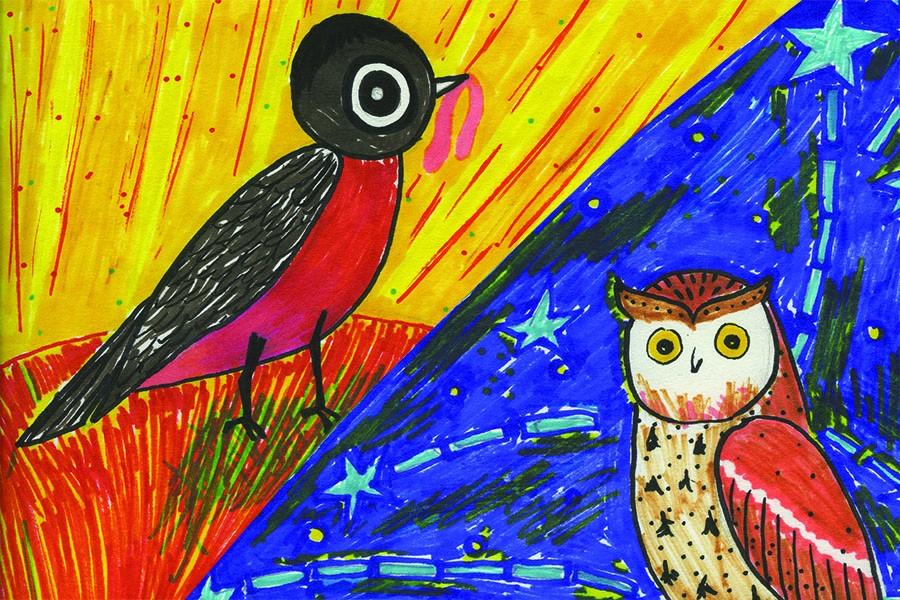Sleep patterns reflect personalities
Junior Matt Becker carries his body with zero hours of rest into his AP English class the day after Thanksgiving break, barely fazed by his lack of sleep. Whether he was running on fumes, or his body was robotic, late-nights are nothing new to this notorious night owl.
“There have been nights I haven’t slept,” Becker said. “And mornings are terrible. On weekends I don’t get out of bed until like 12 p.m.”
People distinguish themselves as either a night owl or an early bird, although it is controversial which one is more beneficial in the long run.
Popular opinion suggests that waking up early has the most benefits. It has been proven through a study that people who wake up early are happier and in better moods than those who wake up later, according to Women’s Health.
“I usually wake up around 6:30 a.m.,” junior Drew Isennock said. “I like to watch the sunrise, and I just feel more alert. I can accomplish more in the mornings.”
Waking up early allows you to accomplish many things, and it gives your body more time to wake up. Health Ambition says that eating a substantial breakfast gives you those nutrients you need throughout the day, but if you try and get those extra 30 minutes of sleep you can’t “break the fast.”
Math teacher Courtney Von Lange is an “early bird” as well, and she enjoys running in the morning and getting stuff done around the house.
“Waking up early is nice because I can get an early run in and get chores done around the house. [I only stay up late] to watch sporting games [and it] is only worth it if my team wins. If my team loses the whole next day is a drag,” Von Lange said.
Although it is said that early birds “get the worm,” many studies have shown that night owls have some advantages over early birds.
Researchers from the Catholic University of the Sacred Heart in Milan found that night people are more likely to develop original and creative solutions to problems than morning people, according to Huffpost.
Not only do they have more creative problem solving techniques, they also have higher energy throughout the day.
Early birds’ energy decreases throughout the day while night owls’ energy remains constant allowing them to finish their work, according to Inspiyr and ASAP Science.
“I do feel a little less energetic, but [I still feel most] focused at night. I’m more productive [with my homework]. There’s a sense of urgency,” Becker said.
According to a survey by The Patriot, the majority of students, 39 percent, go to bed between 11 p.m. and 12 a.m. at night.
Sophomore Emily Schiavone, however, stays up even later. “I usually go to bed around 1:00 a.m. on average, usually because of homework,” she said. “I can get distracted a lot. Usually by Netflix.”
Like Becker, Schiavone feels the nighttime atmosphere provides the necessary pressure for productivity. “I feel more motivated at night,” she said.
Studies have also proven that night owls like Becker and Schiavone need less sleep on average, and are more flexible with their sleeping patterns.
However, it is not always personal preference that determines whether you wake with the rising sun or stay up into the next morning. Genetics, like always, is at play. According to ASAP Science, differing sleep patterns is an evolutionary survival trait developed so that someone would always be awake for protection.
Whether you live by the moon or thrive in the sun, both lifestyles have negative and positive aspects on the body and mind. But in the end, we can all thank our ancestors for our sleep patterns.
Claire Grunewald is a Lifestyles Editor and Mike Moxley is a Multimedia Editor for The Patriot and jcpatriot.com.



